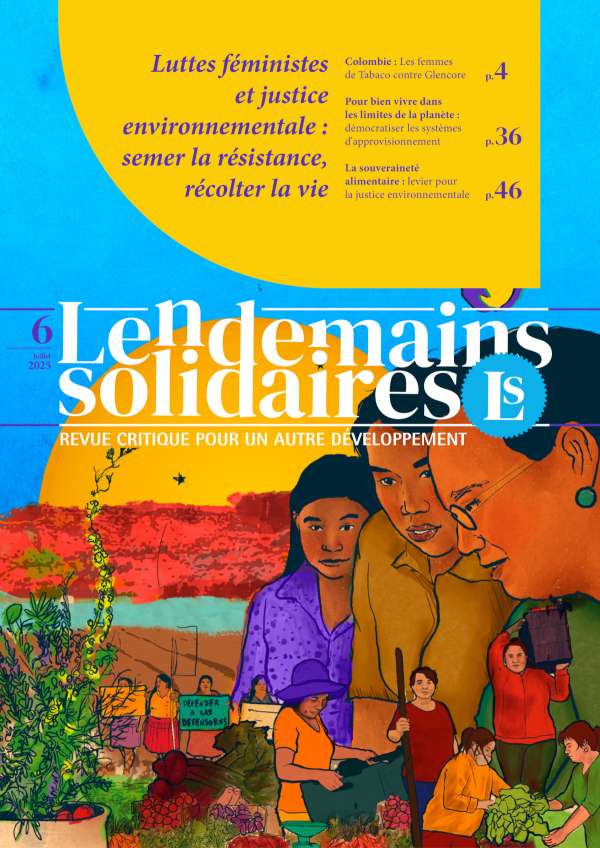CETIM focuses on the promotion and implementation of economic, social and cultural rights (ESCR). They are the backbone of human rights and a powerful tool for achieving a self determinated development model by peoples. This is particularly true for the most vulnerable and marginalised populations. Properly implemented, these rights contribute to the respect for human dignity and to the achievement of social justice. On the contrary, the violation of any of them can jeopardise the enjoyment of all the others.
The universality, indivisibility and interdependence of human rights are enshrined in international instruments. Yet, we are still a long way from their effective implementation for all, and ESCR are among the worst off. Indeed, the basic needs (food, water, health, housing, education) of a third of humanity are still not being met. In some respects, the situation has even deteriorated, including in the countries of the North. This is due to the fact that the policies adopted at economic level accentuate ESCR violations and cause
– increased poverty
– growing inequality across the world
– multiple crises (political, economic, financial, environmental, social and cultural).
By definition, human rights are designed to protect citizens from the arbitrary actions of the most powerful and their governments
The international health crisis linked to COVID-19 has only exacerbated this situation. It has also shown the importance of implementing public policies based on ESCR. In particular, the right to health, the right to housing, the right to food, the right to water, the right to work, the right to education and the right to social security.
But for human rights to be better respected, they must be known, they must be demanded and they must be enforced. However, victims are often unaware of their rights and of the mechanisms available to them for appealing (at national, regional or international level). States, which have an obligation to inform and educate their citizens about human rights, often fail in their duties.
The role played by civil society organisations and social movements in human rights education and training is therefore crucial
– to denounce human rights violations
– to contribute to the implementation of existing standards.
In September 2014, the Human Rights Council adopted a resolution proposed by Argentina that condemns vulture funds and requests the Advisory Committee to produce a report on the impacts of their activities on human rights. At the same time, the UN General Assembly also adopted a resolution on vulture funds and decided to launch negotiations […]
Continue reading
HUMAN RIGHTS COUNCIL 27th session 08 September – 26 September 2014 [Excerpt from the declaration] CETIM is alarmed by the violations of human rights, in particular the right to life, committed by the forces of law and order and armed militias since 2012 in the south of Madagascar. Since the beginning of this year alone, […]
Continue reading
HUMAN RIGHTS COUNCIL 25th session 03 March – 28 March 2014 [Excerpt from the declaration] The root of the problem lies in the failure of Chilean state institutions to take account of the expectations of the Mapuche people, whose priority is to claim territorial rights, including the right to water and natural resources, on the […]
Continue reading
Can one justify a military intervention on humanitarian grounds? Theorists have repeatedly tried to offer a moral and legal legitimacy for interventions and meddling in the affairs of other states, all in the name of the protection of populations and human rights. From the nineteenth century's "humanitarian intervention" to the 1990's "right to interfere", all […]
Continue reading
HUMAN RIGHTS COUNCIL 25th session 03 March – 28 March 2014 [Exerpt of the declaration] It is now recognized that the debt is a heavy burden and that it has a major impact on almost all aspects of the people’s lives of the concerned countries. Worse, it constitutes a tool of domination that deprives the […]
Continue reading
« Previous
1
…
19
20
21
22
23
…
45
Next »


